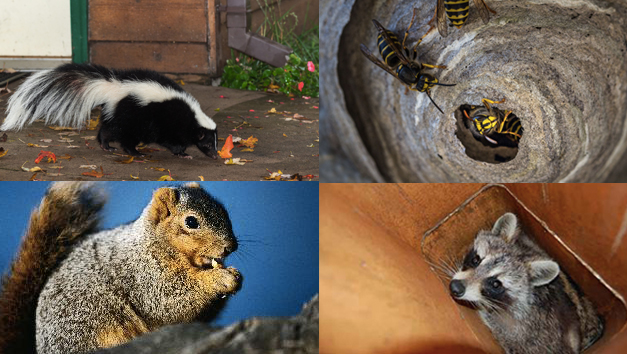What Does Upstate NY Wildlife Control Mean?

Top Guidelines Of Rodent & Wildlife Control - Howard County
In 1985, the Connecticut State Legislature established a license for Annoyance Wildlife Control Operators (NWCOs). Licensed NWCOs should finish an extensive training course and pass a state examination which evaluates their knowledge of NWCO guidelines, policies and treatments; animal recognition, habits, and life histories; suggested wildlife control practices; and gentle handling and euthanasia.

Home - Nuisance Wildlife Services, LLC
They should keep accurate, updated records of their activities and report their activities yearly. Though Official Info Here , their activities are governed by DEEP regulations, policies, and treatments. By instituting these requirements, DEEP is certifying that NWCOs have evaluated the treatments, standards, and expectations of the NWCO Program. (How to End up being a NWCO) If you are experiencing wildlife-caused issues and are not able or unwilling to deal with the circumstance yourself, you will most likely be referred to a NWCO.
Some Known Factual Statements About Wildlife Removal, Prevention & Reparative Services in Dover

Nevertheless, some decisions need to be worked out between you and the NWCO. After contacting a NWCO, you should discuss the following problems before action is taken: With the NWCO's help, determine the upseting species, the variety of animals involved (if possible), and describe the extent and types of damage. Ask the NWCO to recommend possible methods of control, the approximated expenses, and the benefits and downsides of each approach.

Wildlife Removal and Prevention Specialist - A-1 Wildlife Control
DEEP does not control rates charged for NWCO assistance. Such payments should be concurred upon ahead of time in between you and the business you wish to work with. Charges charged might vary in between private business. Due to the fact that private service is being conducted, DEEP is not liable for any actions taken by a NWCO.
Not known Facts About Xceptional Wildlife Removal: Wildlife Removal Pest Control
This program is especially appropriate in metropolitan and rural locations where standard hunting and trapping are not useful approaches of wildlife population control. Do you need help and recommendations worrying problem wildlife? Take a look at and choose "Connecticut" as your state to get begun. This site is supported by the Northeast Association of Fish and Wildlife Agencies and the Northeast Wildlife Damage Management Cooperative.
If this strategy is taken under such situations, you must still comply with state trapping laws and regional guns constraints. Moving of rabies-vector types (raccoon, skunk, and fox) is prohibited under Connecticut General Statutes Section 26-47(b) and 26-57. This constraint is essential to prevent human-assisted spread of this illness and is a crucial component of the state's annoyance wildlife control program.
